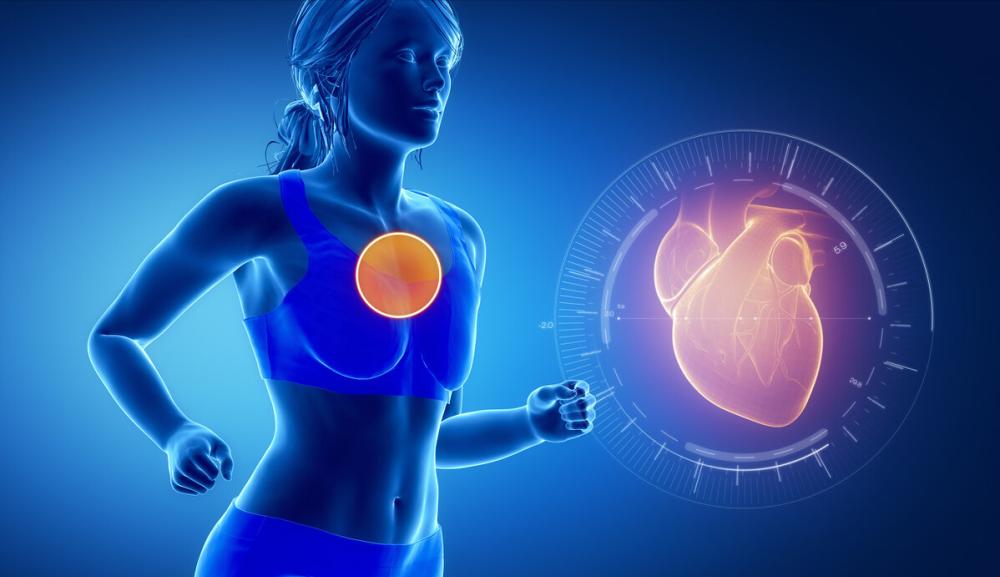Heart failure, referred to as heart failure, is a clinical syndrome caused by ventricular dysfunction, resulting in decreased activity endurance and repeated hospitalizations, which seriously affects the quality of life and is the main cause of death in the elderly. The goals of treatment are primarily to alleviate symptoms, improve exercise tolerance, improve quality of life, reduce complications and readmission rates, and reduce mortality.
Drugs for the treatment of heart failure have always mainly included diuretics: such as furosemide, hydrochlorothiazide, tovaptam; prisclides and sartans that inhibit the renin-angiotensin system; angiotensin receptors - cerebral lininge inhibitors: sakuba trigosartan; β receptor antagonists: lore; aldosterone receptor antagonists: spironolactone, eplerenone; digitalis drugs: such as digoxin. It also includes ivabradine, verapamil, nitrates that dilate blood vessels, statins, and drugs that improve myocardial energy metabolism.

However, in recent years, the latest guidelines have clearly pointed out that sodium-glucose cotransporter 2 (SGLT-2) inhibitors: that is, drugs such as dapagliflozin, empagliflozin, and kapogliflozin will be used as new treatment drugs for heart failure, and the "golden triangle" drugs that have treated heart failure in the past, namely pry + aldosterone receptor antagonists + lore, will be adjusted to the "new quadruple" therapy combined with sodium-glucose cotransporter 2 inhibitors on this basis, laying an important position for such drugs in the treatment of heart failure.
Sodium-glucose co-transporter 2 inhibitors, which can increase glucose excretion in renal tubules, and have diuretic and antihypertensive effects, are new drugs for the treatment of heart failure. These drugs can effectively reduce mortality in patients with heart failure, and are suitable for patients with reduced adult ejection fractions of cardiac function grade II. to IV. During use, the patient's blood pressure, blood glucose and kidney function should be monitored to avoid adverse reactions such as hypotension, ketoacidosis, and renal function impairment.
Taking dapagliflozin as an example, the mechanism of action of dapagliflozin to exert cardiovascular protection is multifaceted. On the one hand, by directly lowering blood glucose levels, dapagliflozin reduces the toxic damage of high blood sugar to blood vessels and myocardium, inhibits increased arterial stiffness and myocardial fibrosis, thereby reducing blood pressure and improving cardiac function.
On the other hand, dapagliflozin can directly inhibit the activity of the renin-angiotensin-aldosterone system, while exerting the permeable diuretic function by inhibiting the co-transport of sodium and glucose, indirectly inhibiting the activity of the renin-angiotensin-aldosterone system, delaying the progress of atherosclerosis, improving vascular endothelial function, exerting a hypotensive effect, while significantly reducing the patient's before and after load and myocardial oxygen consumption.
In addition, dapagliflozin can inhibit sympathetic excitability, and has a variety of effects such as activating nitric oxide-cyclophosphate island glycoside-protein kinase pathway and anti-inflammatory, further regulating endocardial blood flow, enhancing cardiac function and cardiac contractility, preventing left ventricular fibrosis and remodeling, and ultimately promoting cardiovascular benefits.
Studies of empagliflozin cardiovascular outcomes and mortality in type 2 diabetes confirmed that sodium-glucose cotranspirator 2 inhibitors delivered significant cardiovascular benefits for patients with diabetes mellitus, with significant reductions in the main composite endpoint, all-cause death and risk of cardiovascular death. Regardless of whether the patient has a history of heart failure, these drugs reduce the risk of heart failure worsening by 35% of patients and being hospitalized.
Another study showed that after 6 months of treatment for patients with heart failure, the serum NT-proBNP level, the incidence of compound endpoint events, and the incidence of re-admission of heart failure worse were significantly lower than those in the conventional treatment group, and the left ventricular ejection fraction was significantly higher than that in the conventional treatment group. The decrease in serum endothelin-1 levels was more pronounced in the dapagliflozin group and the increase in serum NO levels was more pronounced. This shows that dapagliflozin can also improve the heart function of patients with heart failure by reducing the inflammatory response and improving the role of myocardial metabolism.
Dapagliflozin may interact with loop diuretics such as furosemide, and dose adjustment is required when the two are used together in elderly patients. When patients have hypovolemia or ketoacidosis, dapagliflozin drugs and diuretics can be temporarily discontinued, and the water-electrolyte balance can be adjusted, elderly patients should be vigilant against genitourinary infections, and dapagliflozin drugs should be contraindicated for patients with severe renal dysfunction, end-stage renal disease, or patients requiring dialysis.